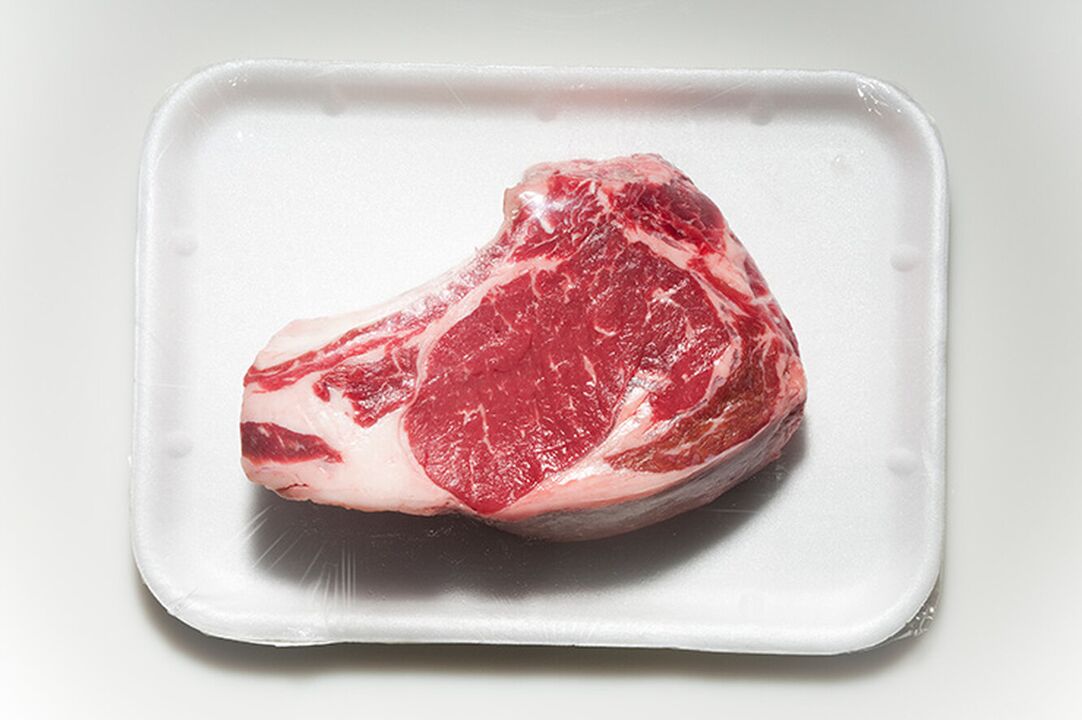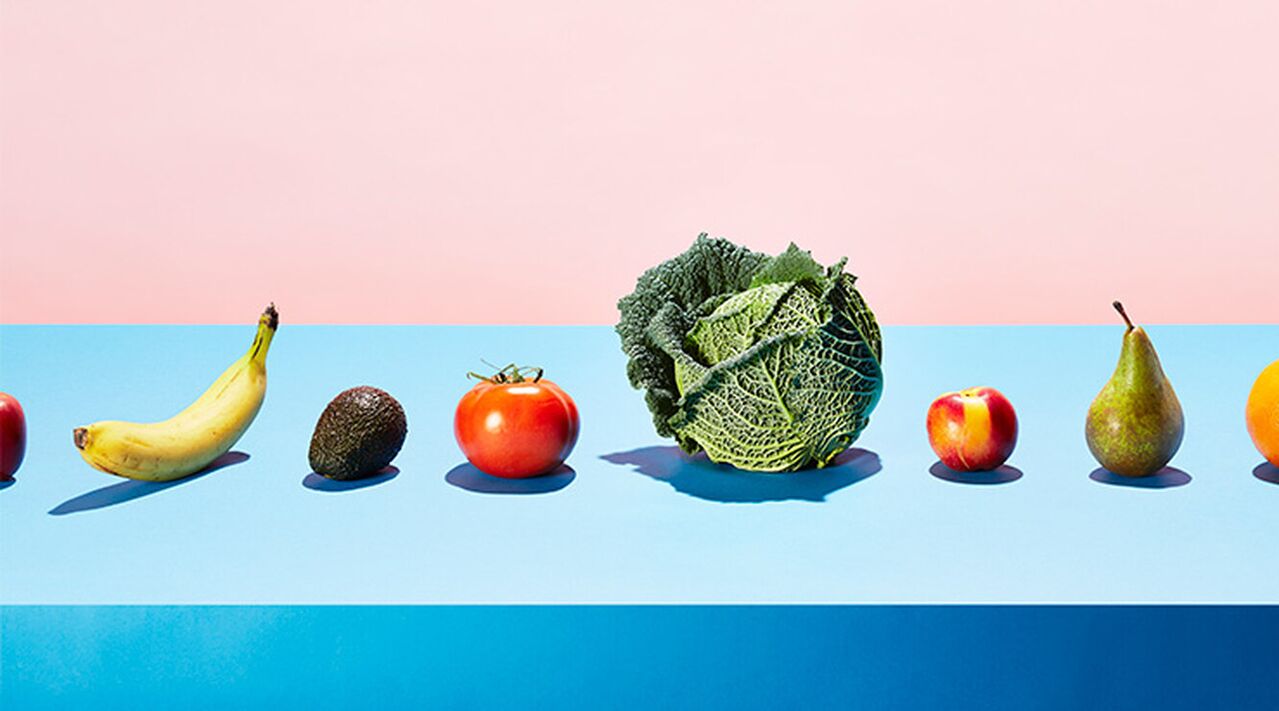Changing eating habits in case of gout is practically a task of first necessity, as this disease is associated with metabolic disorders. What foods can you eat if you have gout, which foods should you not eat, and which foods should you limit? What should be the diet for gout? Can the menu include steaks or chicken breast? Read and you will discover everything!
Proper nutrition for gout is half the success! How to prevent exacerbations just by following a diet? Details in our article.
Gout is a disease caused by metabolic disorders. It occurs when crystals of urate, a salt of uric acid, accumulate in the joints. These crystals begin to form when there are high levels of uric acid in the blood, which in turn occurs when the body produces too much of this acid or the kidneys are unable to eliminate it. The result when uric acid builds up in the body is gout. The diet helps reduce acid production and restore health.
If you don't treat it and change your diet, it can get worse. Crystals that look like sharp needles begin to form in the joints and surrounding tissues. These needles cause pain, inflammation, swelling – generally symptoms of gout. Deposits often accumulate in the joints of the legs, especially in the bone of the big toe. A special diet for gout and high uric acid can alleviate these unpleasant symptoms.

Gout: symptoms and treatment
Diet is very important for gout, but it is important to be sure if you have this disease. We are against self-medication and insist that in case of health problems you consult a doctor. But some signs may indicate that you have gout symptoms. In this case, a diet will be beneficial, but only a doctor can prescribe medication.
- Joint pain – knees, elbows, wrists and fingers can be affected.
- The big toe joint may be one of the first to be affected.
- Joints not only hurt, but they also feel hot and the skin in the affected area turns red.
- Body temperature may increase.
Why is it important to follow a gout diet?
It's simple: the body produces uric acid from purines, chemical compounds that are already present in it. But purines aren't just found in the human body; there are many of them in certain foods: for example, meat and seafood. In addition, some types of food provoke the formation of uric acid, which means that the raw material for urate crystals is alcoholic drinks, especially beer, as well as drinks with fructose - fruit sugar. Therefore, the reason why gout can be triggered is food. The diet involves reducing the diet, you will have to remove some foods from the menu.
If you are in a risk group (for example, you have kidney disease or are hypertensive) - with the wrong diet, the chances of "catching" gout increase. If the disease has already been diagnosed and you are sure you have gout, the treatment is diet: just eat well, otherwise the crisis will not be avoided.
Previously, it was believed that mainly men were at risk, and a special diet was developed as a diet for gout in men. But recently, more and more women are getting sick, so it is important for both sexes to follow a diet. A diet for gout in women, as well as in men, significantly reduces the likelihood of exacerbations.
At the same time, the purpose of restrictions is not only to reduce the consumption of purines and the intensity of uric acid production. A diet for gout in women will also help you lose weight if you have extra pounds. The fact is that with obesity and even extra pounds (of course, extra in the medical sense of the word, appearance has absolutely nothing to do with it), the concentration of uric acid in the body increases and proper nutrition helps to get rid of the kilograms and this effect.
Therefore, the smart solution if you have gout is to diet. Prohibited products will have to be excluded. Important: you should not "rush" and lose weight with the help of exhausting diets, this will only harm you, the acid level, on the contrary, will increase. It is better to get rid of the excess gradually. Eat well and avoid potentially dangerous foods, and you will not be afraid of exacerbations.
Gout in women
A diet that excludes fast food and alcohol from the diet will have a positive impact on health in one way or another. However, a diet for gout on the legs implies a much larger list of prohibited foods - the diet, unfortunately, will become noticeably poorer. On the other hand, changing your diet will significantly affect the course of the disease for the better. Therefore, if gout is diagnosed, the treatment is diet. For women and men, a pleasant side effect is possible - a diet without processed foods can have an overall positive effect on health. It is also important to note that gout symptoms are less common in women. The fact is that the female body contains less uric acid in the blood, and estrogen also protects women from gout.
Differences in the course of gout in men and women
Is it safe to say that if gout is diagnosed in women, the symptoms, diet and treatment will be different from the male version? In general, no: the only difference is that men are more likely to suffer from gout, according to various estimates, 7 or even 19 times more. Furthermore, women rarely get sick before menopause, but men can begin to suffer from this disease as early as 40 years of age.
It makes no difference which joints are affected by the disease. The diet for gout in the legs and arms of men, as well as women, is no different; It's important to follow it. In general, changing eating habits is the main recommendation from doctors for this disease.
List of foods not allowed for gout

Firstly, you need to remove purine-rich foods from your diet. After all, if your body doesn't get extra purines, it won't produce excess acid with them, so why provide building material? There are many purines in foods such as:
- Red meat.Lamb, veal, pork and beef are not the best choice for gout patients. You can eat all of this, but you should limit your portions.
- Meat by-products.The liver, kidneys, brain, any "internal" meat can cause an exacerbation. Yes, this can all be very tasty, but when a gout attack is on the other side of the scale - no thanks.
- Game.Of course, it rarely appears on the table (well, unless you or your partner are avid hunters), but if you are suddenly offered to try something exotic in the form of venison or roast pheasant, refuse.
- Fish and seafood:purines simply float in them. Cod, herring, trout, mackerel, sardines, tuna, as well as crab, shrimp, scallops and many other seafood can greatly worsen the condition of a person with gout. True, some doctors believe that the benefits of seafood can outweigh the harms, but only if they are consumed little by little.
What else is best to avoid? The following foods have also been shown to increase uric acid levels in the body:
- Sweet drinks:lemonade and industrially produced sweet juices.
- Alcohol:beer and wheat-based spirits such as vodka and whiskey. A little is possible, but if we are talking about a gout diet during an exacerbation, it is not possible at this time.
- Extra sugar:honey, agave syrup and other foods high in fructose.
- Yeast additives.
- Semi-finished products(sometimes they contain something completely incomprehensible).
Also, it will be great if you give up white bread, cakes and cookies. By themselves, they are not very dangerous, but they do not contain many nutrients, which also causes the body to produce uric acid.
Of course, a steak or a sandwich with liver pate does not cause an attack, the main thing is to generally follow a diet for gout and high uric acid.
What can you eat if you have gout: permitted foods

We agree that the list of what to exclude from your diet is quite impressive, but that doesn't mean you need to consume only sunlight. Here are some foods allowed for gout.
- Vegetables.You can eat absolutely anything, including those that contain a lot of purines (for example, spinach) - they are not so well absorbed by vegetables.
- Fruits and berries.Almost anything is also possible, and some even necessary - cherries have been proven to reduce the concentration of uric acid and are therefore especially useful as a nutritional component for gout.
- Vegetables.And again, any kind, even lentils, even soybeans, even green beans.
- Whole grains.Oats, brown rice, barley – just as an example.
- Nuts.
- Dairy products.In general, they are all more or less safe, but it is better to eat and drink those with a reduced fat percentage.
- Eggs.
- Lean meat(chicken, turkey).
- Coffee, tea, green tea.There are studies that show that coffee slightly reduces the risk of gout attacks, but drinking too much can have other health effects, so it's best not to overdo it.
- Vegetable oils:coconut, olive, linseed.
- Any spices.
Very useful for gout or tendency to drink as much as possible. Another recommendation is to consume foods rich in vitamin C. Of course, it shouldn't be store-bought orange juice, but the orange itself or tea with lemon are quite suitable.
Diet for gout: food table
So, what can and cannot be consumed if you have gout? Based on what was written above, we have compiled short lists of products for you to check out.

He can
- Vegetables
- Fruits and berries
- Legumes
- Whole grains
- Nuts
- Dairy
- Eggs
- Lean meat
- Coffee, tea, green tea
- Vegetable oils
- Any spices
Carefully
- Red meat
- Seafood
- Fish
- White bread, pastry
Rarely or never
- By-products
- Game
- Juices, lemonade
- Honey and other foods high in fructose
- Semi-finished products
- Alcohol
- Yeast Supplements
Of course, nutrition for gout during an exacerbation involves moving foods from the "With Caution" column down to the "Rarely or Never" column. If your joints hurt, it is better not to burden them with additional deposits, even the most insignificant ones.
Nutrition for gout: menu
So, everything is clear with permitted and prohibited products, but how to combine what is possible so that it turns out tasty and is not repeated too often? We have prepared a sample menu for you for the week and tried to diversify it as much as possible so that you have plenty to choose from. Of course, you can make any additions to the list of permitted products (and a little at a time - from those with caution).

Monday
- Breakfast: green tea, "lazy oatmeal" with kefir or yogurt with berries. Simply pour kefir or yogurt over oatmeal with berries and leave in the refrigerator overnight. You will see, it is very tasty!
- Lunch: quinoa salad with boiled eggs and fresh vegetables, miso soup.
- Dinner: Wholemeal pasta with chicken and vegetables.
Tuesday
- Breakfast: coffee, cottage cheese, peach or a few slices of melon, bran flakes.
- Lunch: Brown rice with roast turkey.
- Dinner: omelet with mushrooms and spinach.
Wednesday
- Breakfast: vegetable salad, a handful of nuts.
- Lunch: lentil soup with chicken broth.
- Dinner: hamburger (whole grain bread, turkey cutlet, cheese, vegetables).
Thursday
- Breakfast: tea, yogurt with berries and bran flakes.
- Lunch: chickpea pilaf with chicken, vegetable salad.
- Dinner: lean fish steak, garnished with green beans.
Friday
- Breakfast: coffee, scrambled eggs with tomatoes and peppers.
- Lunch: potato casserole with minced meat (replace with chicken during an exacerbation).
- Dinner: fruit salad.
Saturday
- Breakfast: milk, potato pancakes with low-fat cream.
- Lunch: grilled vegetables with chicken kebab.
- Dinner: berry smoothie, a few sandwiches with cheese and herbs (it's better to take whole grain bread).
Sunday
- Breakfast: tea, whole milk porridge with berries.
- Lunch: lasagna (again, best to use whole grain sheets as a base and minced chicken).
- Dinner: pollock with chicken and mushrooms, homemade mulled wine based on berry compote (just add your favorite seasonings, apples and citrus fruits and heat).
You can use any vegetables, fruits and berries as a snack. We remind you that cherries and citrus fruits are especially useful, and it is also important to drink more pure water. Dehydration makes gout worse.
In general, the gout diet, table 6, is quite easy to follow, the list of products is quite extensive and you can create many combinations between them. Of course, in summer it is much easier to follow a diet because vegetables are cheaper and their variety is much greater. However, you can always pay attention to seasonal vegetables: say, in September the watermelon season continues, in December the stores are full of tangerines, later they are replaced by pomelos. . . The same cherries can be frozen in summer, and in winter you can make compotes or pies from them (it is better not to make them with yeast dough and infrequently), and lemons are available all year round without any restrictions.
The right diet for gout: results and reviews
If you follow a proper diet for gout, the patient can count on a longer remission and a milder course of the disease. The diet will alleviate gout and its symptoms - the pain will subside, the inflammation will subside. Numerous reviews also talk about this. It's important to note that almost everyone who told stories of their struggle with gout on the Internet regretted not seeing a doctor at the first symptoms. So even if you haven't been diagnosed with gout, but something in this material seems familiar to you, go to the clinic - just in case.
In general, diet 6, gout, recipes with many restrictions, all of this is not a death sentence. The frequency of exacerbations can be significantly reduced if you eat well and thus control your uric acid level. And even if you eat a steak once a month and wash it down with stout, it's unlikely to trigger an attack if you generally follow your diet.






























